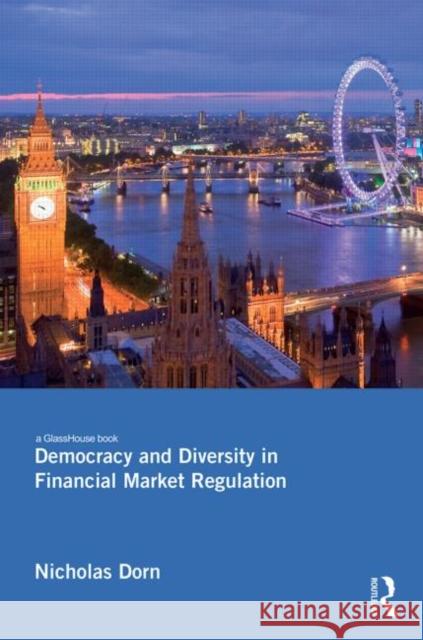Democracy and Diversity in Financial Market Regulation » książka
Democracy and Diversity in Financial Market Regulation
ISBN-13: 9780415712170 / Angielski / Twarda / 2014 / 202 str.
Democracy and Diversity in Financial Market Regulation
ISBN-13: 9780415712170 / Angielski / Twarda / 2014 / 202 str.
(netto: 720,05 VAT: 5%)
Najniższa cena z 30 dni: 654,86
ok. 16-18 dni roboczych.
Darmowa dostawa!
The book introduces international developments through a hundred years history of regulation on the City of London. Regulation is shown to be a historically-entrenched masquerade: private regulation behind a public facade. The UK reconciled the coming of democracy with a continuation of private regulation in the City by holding them separate. International networking and EU integration channelled UK and US traditions and their consequences into Europe. The pre-crisis myth was that expertise could steer financial markets. Technocrats drove policies. Agenda making drifted upward, from the national (or more specifically city) level, to international networks. Convergence of regulatory thinking and rule making levelled the 'playing field' - to the advantage of large transnational market participants, yet exacerbating market herding, similarity of business strategies, connectedness, contagion and crises. Democratic steering has the potential to introduce greater diversity into international regulatory regimes. Yet powerful forces continue to push for greater convergence and less democracy.In reaction to the Eurozone crisis, policy elites constructed new 'mechanisms', minimising influences from European and national courts, parliaments and citizens. The US, having developed the default option of public bailout of private risk-taking, urged bank bailouts in the Eurozone, weakening sovereigns. Technocracy was wounded by crises but then rebounded. Democracy and Diversity in Financial Market Regulation will appeal to all those looking for a historically, politically and culturally based approach to financial market regulation."











